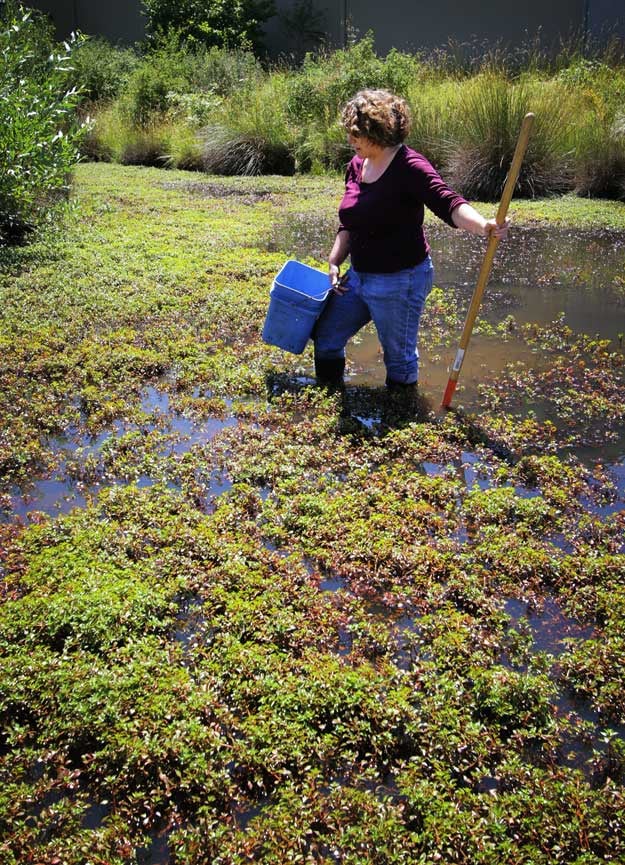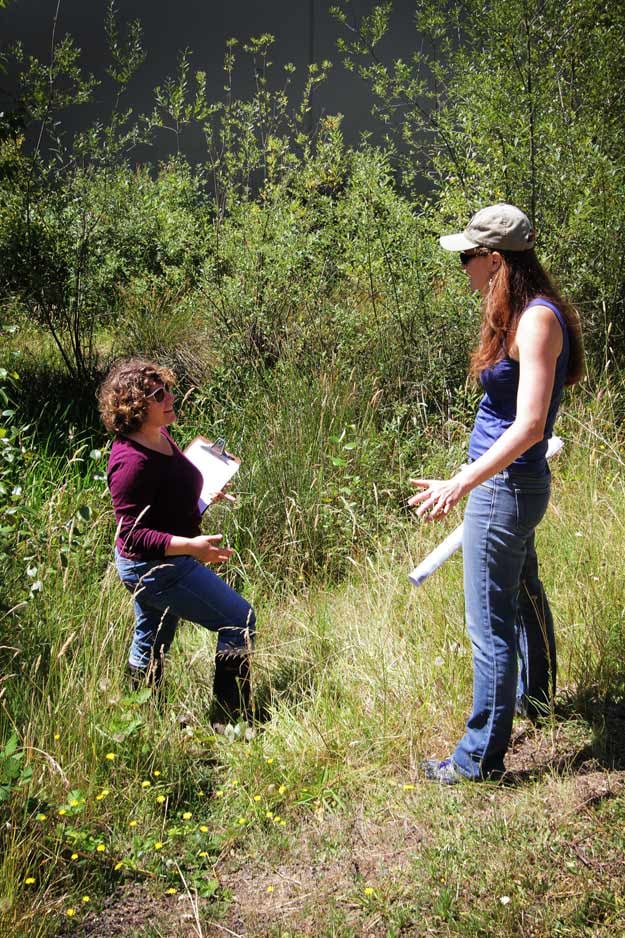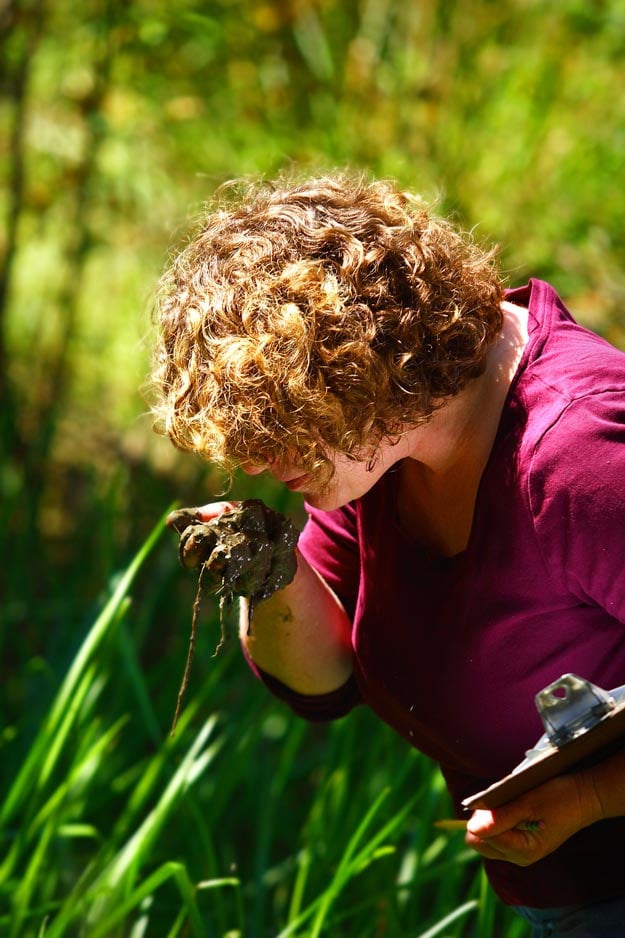Last November, Mountain Rose Herbs was recognized as the first Eugene business to become Salmon Safe certified! Along with businesses, Salmon Safe helps farms, vineyards, campuses, developers, and parks transform land management practices to protect Pacific salmon. The team of experts evaluated our current practices and praised us for being on the right track. They also gave recommendations for how to improve, and we’re taking their advice!
In the spring, we reached out to the Long Tom Watershed Council, a local non-profit devoted to improving water quality in our watershed. On a hot day in July, it felt like 97 degrees in the sun, but that didn’t stop us from walking the parameter of our campus, slogging through the bio-swale, and taking plant and sediment samples. Sarah Whitney, Interim Project Manager for LTWC, educated us about best practices and overall goals of storm water management.
“Managing stormwater as close to the source as possible helps to mimic pre-construction (if not natural) conditions of the site, allowing the water to be slowed, cooled, and cleaned before entering the ground water or streams. On a typical site, stormwater flows over parking lots, roofs and garbage areas, picking up pollutants before entering a stormdrain which pipes the water directly to streams bringing pollution and scouring the banks.”
Our campus is sandwiched between sensitive wetlands and the Amazon canal which flow into the Long Tom River, a tributary of the Willamette River, one of the most important waterways in Oregon. That is one reason we feel so strongly that it is our responsibility to care for on-site water runoff and refuse to landscape with pesticides.
Sarah continues, “To mitigate these impacts you must create an area for stormwater from these hardscape areas to flow through vegetation and soil before entering a storm drain. These areas can often be sized so that no water overflows from the site in a typical rain event, instead allowing the water to be up taken by plants and to flow down, recharging the aquifer. The best plants for these areas are wetland plants, so additional pockets of habitats are created that provide food and shelter for pollinators, birds, and other wildlife.”
Sarah and the team also helped us assess and prioritize projects. Potential projects include: planting native Bigleaf Maples to provide shade and habitat, installing a rain garden to manage parking lot runoff, cleaning out our bio-swale and retention pond, and building a green roof above our recycling area. Exciting things to come!
Learn more about our commitment to sustainability!
Photo credit: Ephraim Payne, Long Tom Watershed Council













